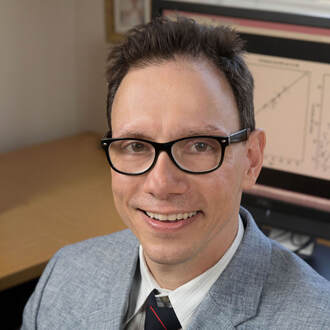Dr. Steve Horvath
Steve Horvath, Ph.D., ScD is an aging researcher, bioinformatician, and a Professor of Human Genetics at the David Geffen School of Medicine and Professor of Biostatistics at the Fielding School of Public Health, University of California.
His research lies at the intersection of biostatistics, bioinformatics, computational biology, cancer research, genetics, epidemiology, machine learning, and systems biology. His group applies these methods to study a broad spectrum of diseases, among others on aging research, cancer, cardiovascular disease, HIV, Huntington’s disease, chronic diseases, and neurodegenerative diseases.
Steve works on all aspects of biomarker development with a particular focus on genomic biomarkers of aging. He has developed a highly accurate multi-tissue biomarker of aging known as the epigenetic clock.
Steve proposed the epigenetic clock theory of aging which views biological aging as an unintended consequence of both developmental programs and maintenance programs, the molecular footprints of which give rise to DNA methylation age estimators. DNAm age is viewed as a proximal readout of a collection of innate ageing processes that conspire with other, independent root causes of aging, to the detriment of tissue function.
Steve developed approaches and methods for analyzing and integrating gene expression-, DNA methylation-, microRNA, genetic marker-, and complex phenotype data. In particular, he has developed a weighted correlation network analysis (also known as weighted gene co-expression network analysis WGCNA), which is a systems biologic data analysis method for analyzing high dimensional “-omics” data. These methods also lend themselves to comparing different species at the genomic level and thus integrating gene genomic data sets.
These methods have been used for a broad spectrum of age-related diseases including neurodegenerative disease, cancer, and cardiovascular disease. Steve authored and published a book on weighted network analysis and genomic applications titled Weighted Network Analysis.
Steve also works with Machine Learning, both on supervised and unsupervised methods. For example, he developed the random generalized linear model (randomGLM) predictor, random forest clustering (RFclustering), and the cluster and propensity-based approximation of a network (CPBA).
Steve has a long-standing interest in developing and applying allelic association tests. He has worked on the family-based association test (FBAT). More recently his group is interested in enhancing GWAS studies and exome sequencing methods.
Steve earned his Doctorate of Science in Biostatistics from the Harvard School of Public Health in 2000. In 1995, he earned his Ph.D. in Mathematics from the University of North Carolina, Chapel Hill. Steve earned his Bachelor’s Degree of Science in Mathematics and Physics from the Technical University of Berlin, Germany in 1989. Steve was born in Frankfurt, Germany.
Steve won and received several awards for his work on the epigenetic clock. In 2017, he received the Allen Distinguished Investigator award for clock studies in vertebrates. In 2019, he received the Open Philanthropy Project award for mechanistic studies of the epigenetic clock and the Schober Award for outstanding and innovative research in the field of ageing.
Salient features of the epigenetic clock include its high accuracy and its applicability to a broad spectrum of tissues and cell types. He develops and applies methods for analyzing and integrating gene expression-, DNA methylation-, microRNA, genetic marker-, and complex phenotype data. His lab members apply and develop data mining methods to study a broad spectrum of diseases, e.g. aging research, cancer, cardiovascular disease, HIV, Huntington’s disease, and neurodegenerative diseases.
In 2019, Steve released a clinical trial where he showed Age Reversal for about 2.5 years in humans. Read Reversal of epigenetic aging and immunosenescent trends in humans.
Watch Steve Horvath at Undoing Aging 2018, Epigenetic Clocks Help to Find Anti-Aging Treatments, and Epigenetic aging clocks in vertebrates. Watch Steve talk about how the Allen Distinguished Investigator award has impacted his research.
Read Biomarkers and ageing: The clock-watcher, A Steve Horvath – Aging and the Epigenetic Clocks, and DNA methylation GrimAge strongly predicts lifespan and healthspan.
Visit his UCLA profile, Brain Research Institute profile, Academy for Health & Lifespan Research profile, Wikipedia page, and Undoing Aging 2020 Speaker page. Follow him on Google Scholar, ResearchGate, and Semantic Scholar.
